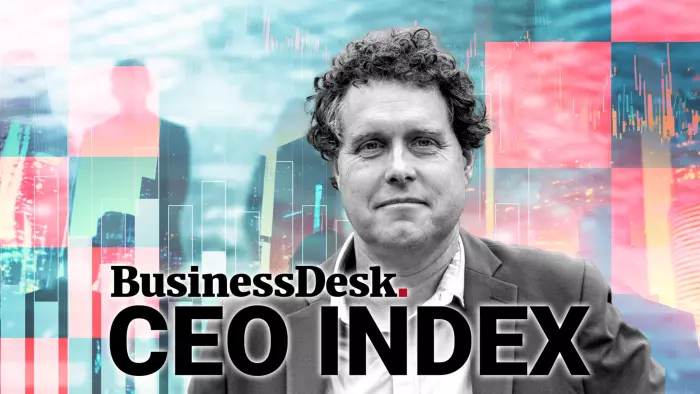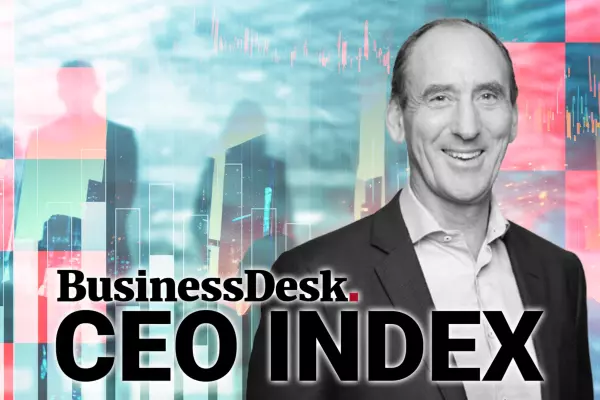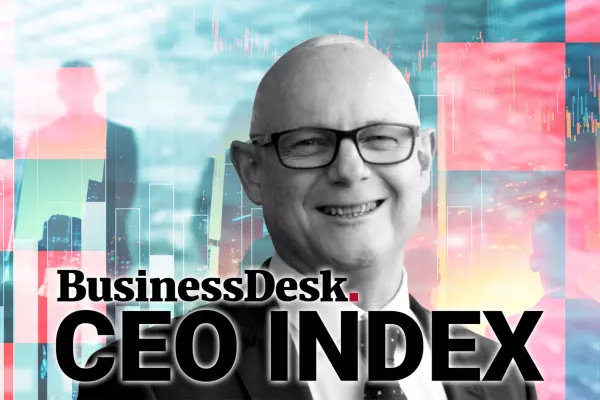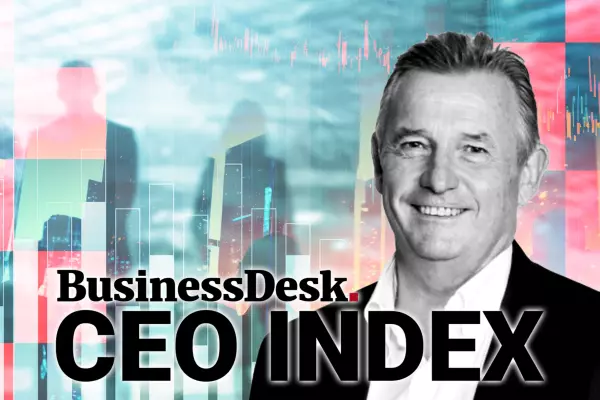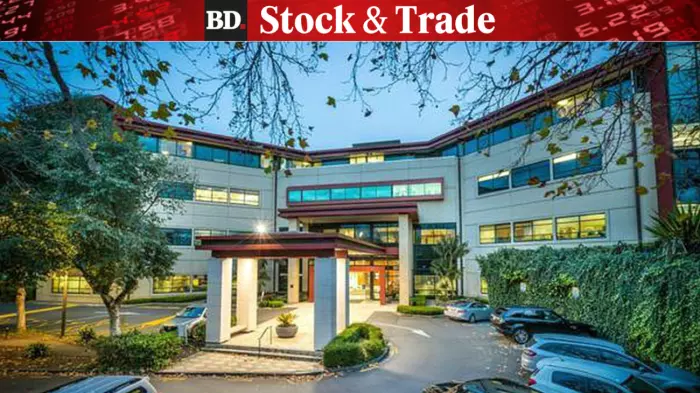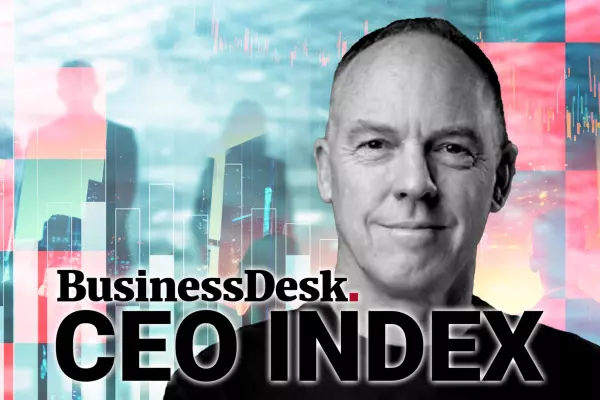Rocket Lab founder Peter Beck is one of those remarkable entrepreneurs who is making history with a clear, think-big vision, and the country is happy to ride on his shirt tails, as it has done with Peter Jackson, Xero founder Rod Duke, and other well-known greats.
“I’m trying to build the biggest space company in the world. That’s the plan: a multi-generational company at Rocket Lab that goes beyond just myself,” Beck tells BusinessDesk.
Unlike other leaders on the inaugural BusinessDesk CEO Index, Beck has fielded many accusations that he was crazy on his 20-year journey, but those naysayers must be feeling pretty sheepish now.
3D-printed rocket engines
Beck is a shortlisted finalist in the listed sector of the BusinessDesk CEO Index – Rocket Lab is listed on the Nasdaq with a value of approximately $50 billion.
“People call you crazy until you do the thing you said you were going to do; then they start calling you a visionary,” says the founder, president, and chief executive officer of Rocket Lab.
Beck remembers being told before the first launch of his Electron rocket that there was no way his 3D-printed rocket engines or carbon-composite rocket would ever work.
“And now, Electron is the world’s most frequently launched small rocket. We launch more times every year than entire countries combined – the global order of launch goes something like America, China, and then Mahia, Hawke’s Bay,” he says.
Quintessential startup founder
The CEO Index panel of independent judges says: “Peter Beck is a quintessential founder: driven, visionary and someone who doesn't hear ‘it can't be done.'"
BusinessDesk asked Beck about his approach to the CEO Index key criteria: vision, impact, innovation, resilience, and influence.
Vision: Beck’s vision for Rocket Lab is succinct but ambitious: “We go to space to improve life on Earth.”
And for him, communicating a vision isn’t just about standing up and giving a speech in a room full of people, he says. “It’s about embedding that vision into the culture, into the work, and into the way we operate every single day.”
Rocket Lab is not a nine-to-five company, he warns new staff. He likes to make sure they understand and are driven by the bigger purpose: “You don’t launch to the moon or build spacecraft for Nasa missions to Mars, like we have, just by clocking in and clocking out without a second thought.”
Whenever he’s in New Zealand, Beck goes along to orientations for new team members and shares the stories behind Rocket Lab’s most exciting missions and programmes so they get a wider context on why their work matters from day one.
Taking his vision to investors and shareholders, meanwhile, it’s about being transparent in order to bring them on the ride, and if that means having to explain rocket science to a Wall Street banker, then so be it.
“People buy into a vision when they see that you’re not just dreaming, you’re executing,” he adds.
Impact: If he can achieve the vision, it’s going to have an impact, as far as Beck is concerned. (That vision, or mission statement, once more: "We go to space to improve life on Earth.")
He says the thing that gets him up every morning is the power Rocket Lab has to affect so many lives down here on Earth.
“By opening up access to space with regular and reliable rockets, and by being able to offer up spacecraft to companies and governments on a faster timeline and at cheaper costs than they’ve ever had before, we’re making it easier for science to be conducted or infrastructure to be built,” he says.
“And that has the ability to affect millions, tens of millions if not billions of people around the world every day.”
Innovation: “If you’re afraid to fail, you’ll never innovate, and I try to make sure every member of the team knows that,” says Beck.
“It’s really important in a fast-moving and constantly evolving industry like ours that difficult things or setbacks are embraced as being part of the process,” he adds.
He says he approaches leadership with the same mindset as engineering: question everything, iterate constantly, and do the impossible.
As for creating the technology, Rocket Lab is highly vertically integrated. About 95% of the Electron rocket is produced in-house at Rocket Lab, and that involves a lot of innovation.
“The same is true for our spacecraft, from the individual solar cells on a spacecraft’s solar wings, to the star trackers that guide them, to the reaction wheels that move them around in space, to the software that commands all of those processes.”
Resilience: Every mission and programme calls on the resilience skills of his team, says Beck. “There’s a saying we go by from Sir Ernest Rutherford: “We don’t have much money. Therefore, we must think.”
Rocket Lab is in competition with private space companies that belong to two of the world’s richest men, Elon Musk and Jeff Bezos, Beck points out.
“And we’ll never have the infinite capital to burn like they do. So we’ve got to act differently, make smarter decisions, and make them quickly – and that methodology has been pretty foundational to our success and resilience so far.”
Influence: Sometimes big thinkers like Beck can be all about themselves and the empire they’re building, but the Rocket Lab CEO has mentored a number of startup founders.
“Outside of work, I do a lot with New Zealand entrepreneurs and the startup scene, and the number one thing that I’m always saying is for them to show me the path to becoming a billion-dollar company.”
His message to these fledgling founders is to think bigger about what they’re taking on in the world and to be the absolute best at what they do.
“If the success of Rocket Lab inspires anything, I want it to be that [inspiring] for other people and startups with exciting new ideas.”
A good book: “I’m not a reader of science fiction or self-help books. I’m more interested in diving deep into technical papers or instruction manuals that give me actual useful information,” says the entrepreneur.
Sliding doors: “There’s no other job in the world I’d rather be doing,” says Beck. But for the record, he enjoys flying helicopters.
“It’s a real escape to just walk out to a helicopter, go into a little bubble, and then for the time you’re there, you’re 100% focused on that – you can’t be thinking about the separation systems of a rocket while you’re flying or you’ll risk crashing.”
“Occasionally I’ll relax by flying a jet or driving a race car – really anything where there’s no possibility of thinking about work.”
Peter Beck is a finalist in the listed sector category of the inaugural BusinessDesk CEO Index. The category winner will be announced on Nov 18. BusinessDesk will publish a profile of the overall winner on Nov 19.
Read more of the BusinessDesk CEO Index here.


